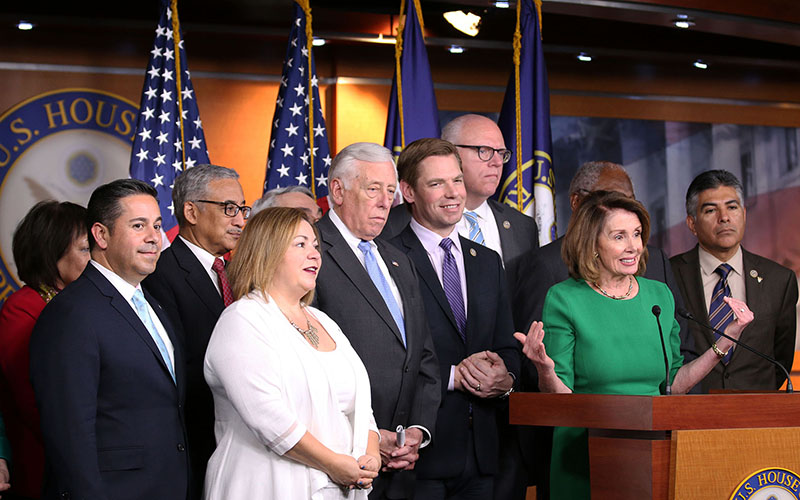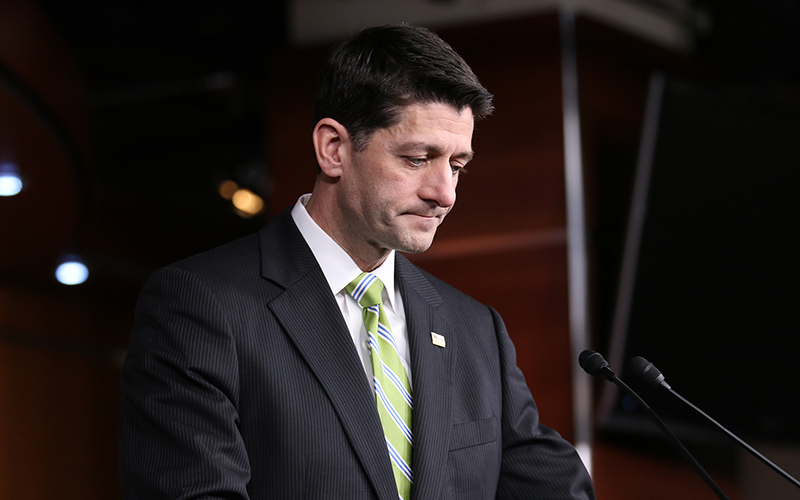WASHINGTON – House leaders withdrew their plan to replace the Affordable Care Act just minutes before a scheduled vote Friday, but Arizona lawmakers on both sides of the issue said they expect the fight over Obamacare to continue.
After years of efforts to repeal Obamacare and weeks of lobbying, House Speaker Paul Ryan conceded Friday that he did not have the votes to pass the American Health Care Act and pulled it from consideration.
At the end of what he called a “disappointing day,” Ryan said Obamacare remains the law for the foreseeable future, and said the party would turn its attention to tax reform, border security and other high-priority issues for now.
But Arizona officials – many of whom had come out against the GOP plan – were not in a celebratory mood Friday. They said they expect to continue to fight, either to replace the law or to defend it against future attacks.
“While health coverage for millions of Americans is safe for now, it’s important to remember that Republican orthodoxy still views this outcome as a failure,” said Rep. Raul Grijalva, D-Tucson, in a statement released after the decision. “We can’t lose sight of the fact that the GOP just tried to cut off healthcare for 24 million Americans to help cover $600 billion in tax cuts to the rich.”
Rep. Martha McSally, R-Tucson, who had voiced her support for the American Health Care Act after extracting concessions from Republican leaders on tax credits for the elderly and other issues, said that Obamacare “is still failing families in Arizona, and so the mission has not changed.”
“Whatever the legislative vehicle going forward, I will continue to strive towards better healthcare for my constituents,” McSally said in a statement released by her office.
Republicans have campaigned against Obamacare since its passage and had hoped to get House approval for their replacement Thursday, the seventh anniversary of the law’s signing.
But Democrats in the House were adamantly opposed to the bill, which they said would give the greatest benefits to higher-income families while hitting seniors and low-income families hard and forcing millions to lose coverage.
They were joined by Republicans in the conservative Freedom Caucus, who opposed the bill that they said did not do enough to dismantle the Affordable Care Act. They were able to win some concessions in bargaining with their party’s leadership and the White House, but not enough to swing their support for the bill.
A Congressional Budget Office assessment of the bill predicted that it would reduce the federal deficit by $337 billion through reductions in spending, but would also result in 14 million Americans losing their health insurance immediately with that number growing to 24 million over 10 years.
The CBO report on a later version of the bill, after concessions made for critics, said it would still have added 24 million people to the ranks of the uninsured but shrank the deficit reduction to $150 billion.
Whatever shortcomings the bill had, critics said Obamacare has been worse, despite getting insurance to millions who were not able to get coverage before.
They point to sharply rising premiums – Arizona’s average increase of 116 percent this year was the highest in the nation – and a drop in the number of companies offering insurance under the ACA that left many counties with just one provider. Both problems are expected to continue next year.
Within an hour of the end of Friday’s debate, many lawmakers were already on their way out of town, their staffers said. But Rep. Tom O’Halleran, D-Sedona, was in his office taking the sudden shift in the bill’s fortunes in stride.
O’Halleran, who was on record opposing the GOP bill, said it is his “sincere hope” that lawmakers will use the pause as an opportunity for constructive collaboration to devise a better health care plan.
“We do need to address the issues that are within the ACA that are not correct,” O’Halleran said. “I don’t care what they call it when it’s done, but we do need to address these issues.”
While Ryan said he does not expect to see a replacement for the ACA anytime soon, O’Halleran said Congress should not wait.
“Any time American people are having problems and they are not addressed and something like this occurs, it’s not a victory for anybody,” he said. “It’s an indication that we should take this opportunity to address the issue.”
-Cronkite News reporters Alexis Egeland and Kendra Penningroth contributed to this report.

